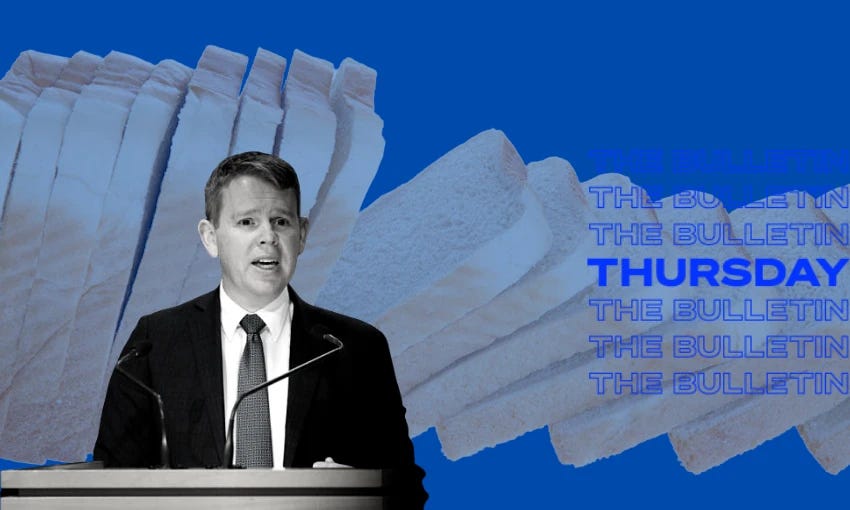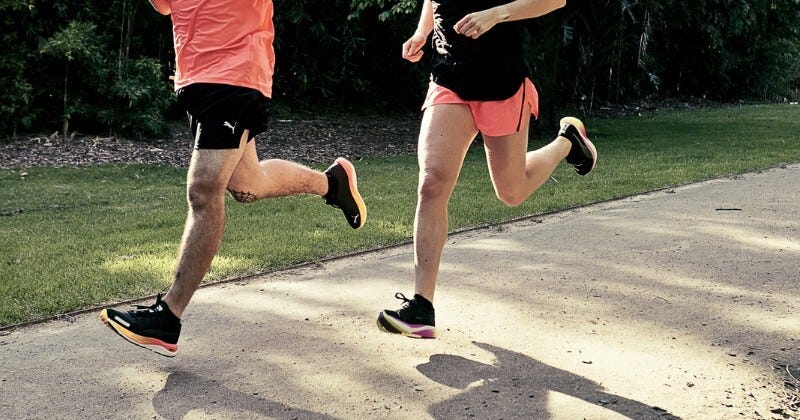Poll shows change at the top has potential to shift votes
Prime minister Chris Hipkins reiterated yesterday that the "bread and butter" issue of inflation is the number one focus for the government and a new poll demonstrates why
In today’s edition: rising interest rates may not be an electoral slam dunk for National; health minister responds to GPs claims of underfunding; Auckland mayor and his media track record; but first, a new poll and a holding pattern for political news hounds and the economy
New prime minister Chris Hipkins is sticking with "the bread and butter" issue of inflation as the government's number one priority
New poll suggests change of prime minister could sway the vote of 12% of New Zealanders but it depends on who it is
A new Horizon Research poll notes that when asked “if a change of prime minister would make them more likely or less likely to vote Labour at the 2023 election”, 12% of people said it would depend on who the new prime minister was. That at least demonstrates the potential of change for Labour after Chris Hipkins and Carmel Sepuloni were sworn in yesterday. The new prime minister wouldn't be drawn on much at his first post-cabinet press conference which is probably fair as he is yet to realign his team and their portfolios. Unfortunately the natural order of things doesn’t make for great headlines. Hipkins is meeting with business leaders in Auckland today and said yesterday that immigration settings could change if the government sees a need to do so.
Bread and butter as far as the eye can see
Another Horizon Research poll also showed the cost of living was the top issue New Zealanders wanted the new prime minister to address. Hipkins’ main message yesterday reiterated that the cost of living, “the bread and butter of inflation”, would remain the number one priority for the government. The inflation figure was released yesterday (brief explainer on that from me here). It remained stable, coming in at 7.2%, which is the same as last quarter. Grocery prices have risen by 10.2% in a year but Countdown said yesterday it is expecting the price of seasonal produce to drop. The markets also rallied, closing near a 10-month high yesterday (paywalled) on renewed hope that a possible recession might be avoided.
Unusually diverse range of thoughts on inflation figure
I’d describe the response to yesterday’s inflation news as inconclusive. As RNZ’s Nona Pelletier said last night on Checkpoint in a bid to sum up where things might be heading: “The economists can’t seem to get on the same page so why should we?” The same can be said for predictions on what the RBNZ should or will do with the official cash rate on February 28, although there is a growing consensus on the OCR lift being .50% rather than the previously expected .75%. Stuff’s Tom Pullar-Strecker has rounded up the unusually diverse range of thoughts on yesterday’s announcement into a handy one-pager here. We are definitely still in something of a holding pattern.
Tax and superannuation
Hipkins reiterated that during this term, he would stick to the promise made by former prime minister Jacinda Ardern about not introducing a capital gains tax. He also said the age of eligibility for superannuation will not change this term. That’s not 100% off the table for future terms and his potential tenure as prime minister. He did say any changes in those areas will come with a lot of warning. Head to the bottom of today’s Bulletin to read about the how the French are framing a plan to change the retirement age there. This morning, Stewart Sowman-Lund summarises the prime minister’s comments and any potential meaning we might be able to glean from them.
Kick off 2023 in style
Puma wants to help you crush your running goals in style and comfort. Whether you’re a pro or you just aim to get around the neighbourhood a few times a week, Puma’s world-leading NITRO foam technology, is pushing the boundaries of what’s possible in a running shoe – and pushing you towards a new personal best. Run Puma. Spark Change. (sponsored)
The electoral impact of rising interest rates
Good attempt here by the Herald’s Thomas Coughlan (paywalled) to work out whether those most impacted by rising interest rates are a significant enough voting bloc to shift the election. Those most impacted will be those who have bought in the last couple of years. Data on average mortgages and household net wealth is a bit patchy, so it comes with some caveats, but essentially the size of the potential voter block is quite small. About 32% of New Zealand households have a mortgage on their primary residence and the average size of their outstanding mortgage debt was $260k. Around 16% have mortgage debt over that amount and an even smaller fraction of households have mortgages touching $500k. Coughlan says the impact of rising interest rates may not be the electoral slam dunk National were hoping for, but it’s not a good news story for Labour either. “True mortgage pain is avoiding people National would have won anyway, and hammering people Labour had wanted to cultivate,” he writes.
Andrew Little responds to GP’s claims of underfunding
As BusinessDesk’s Cécile Meier reports, health minister Andrew Little wrote to GPs in mid-December to refute claims of underfunding. Little’s letter was in response to GP association GenPro’s “Save your family doctor” campaign and the On the Brink report published in November which set out a nine-point plan for boosting support of GP services. Little acknowledged the important role of general practice and the pressures it is under but wrote that “there is a difference between listening and unquestioningly accepting claims made in furtherance of commercial interests”. In response, GPs told Little his information could “materially mislead the public”.
Auckland mayor declines all but two of 108 requests for interviews
According to figures obtained by RNZ, Auckland mayor Wayne Brown received 108 media requests from radio, television, print and online outlets between October 12 and November 12. Brown did two one-on-one interviews, two media conferences and one media stand-up. Statements and information were provided in other instances. His proficiency in the boardroom, rather than in front of a microphone, and his focus on Auckland council's performance and financial position was offered as an explanation. Not everyone is cut from media-loving or indeed media savvy cloth, but there is the matter of the role of media in covering issues of public interest to consider. RNZ’s Guyon Espiner quipped that former mayor Phil Goff would probably have given 108 interviews from just two requests.
Click and collect
Good interview with Grant Robertson (confirmed to continue as finance minister) about what he learned from Covid and what it means for this year
Scorching temperatures to hit Canterbury this week, heavy rain expected in Northland
New hotels, fewer emergency housing motels for Hamilton
US and Germany to send tanks to Ukraine, Germany will permit exports of tanks by other countries
Doomsday Clock at 90 seconds to midnight, the closest to midnight the clock has been since it was established in 1947
Got some feedback about The Bulletin, or anything in the news? Get in touch with me at thebulletin@thespinoff.co.nz.
If you liked what you read today, share The Bulletin with friends, family and colleagues.
Tommy de Silva considers the question of whether or not you should wear a bicycle helmet. Stewart Sowman-Lund reports on an unexpectedly thrilling talkback radio journey to find Marcus Lush’s keys. Charlotte Muru-Lanning asks why overseas breweries still get it so wrong when it comes to Māori. Linda Burgess delivers a late, great review of Spare by Prince Harry. And Claire Mabey asks whether the closure of Vic Books is a sign of the times.
Ruby Tui skipping Super Rugby Aupiki
Star of the Black Ferns world cup-winning team, Ruby Tui, is still deciding on what’s next for her career. A New Zealand Rugby spokesperson confirmed Tui would not feature as a player in Super Rugby Aupiki this year after playing for the Chiefs Manawa in last year’s inaugural competition. In great news for fans and the continued growth of the presence of women in all areas of the sport, Tui will instead be in the commentary box for Sky.
“Retirement before arthritis” - the French protest retirement age change plans
It’s easy to poke fun at the French and the stereotypical ideas associated with their work ethic but Emmanual Macron’s attempt to raise the retirement age in France from 62 to 64 is being framed in the context of wealth distribution. Last week the French took to the streets of Paris to protest Macron’s plan. “Retirement before arthritis” is from one of signs at the protest. As Pamela Druckerman writes for The Atlantic, making the change seems like simple maths but sociology professor Dominique Méda says there’s an idea that these kinds of changes are made exclusively to the detriment of workers. “This is all happening amid the announcement of enormous dividends and the crazy rise in the fortunes of billionaires. It makes people angry,” she says.











